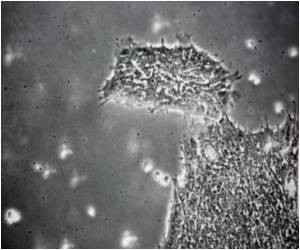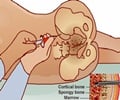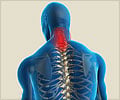It has been known for sometime that proteins mediate pathways that drive the spread of cancer.

Ongoing research is studying the impact of various therapies, such as Gamma-secretase inhibitors and histone deacetylase (HDAC) inhibitors, that regulate the Notch pathway and have the potential to affect cancer cell survival. Hughes found that HDAC inhibitors actually increased the Notch pathway in osteosarcoma cells that had low Hes1 expression, which was an unfavorable response in that sample group. However, for cells that presented with high Hes1 expression, where Notch was already maximized, the HDAC inhibitors led to osteosarcoma cell death.
"By defining vital signaling pathways in bone sarcomas, we hope small molecule inhibitors can be applied, leading to longer survival and reducing morbidity and late effects from intensive chemotherapy," said Hughes.
"We also hope these new findings may apply to other solid tumors such as breast, prostate, colon and more, but we'll need additional research to determine whether or not that is the case," he added.
Source-Eurekalert















